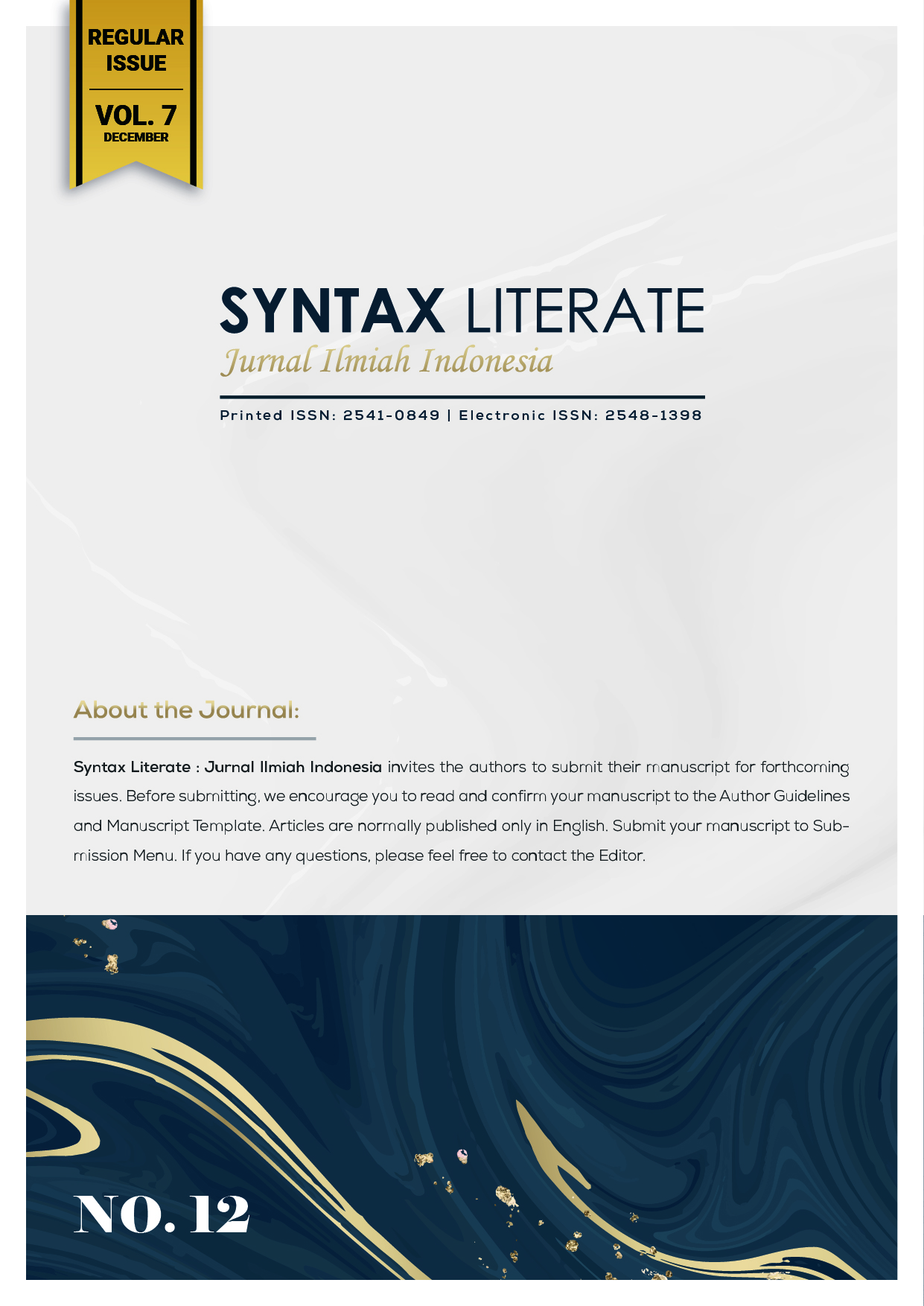Perilaku Generasi Z dalam Berinvestasi di Cryptocurrency: Kajian Konseptual Filsafat Ilmu dengan Perspektif Perilaku Konsumen
Abstract
Dalam pemaparan paper ini ditujukkan untuk mengkaji secara konseptual filsafat ilmu dengan perspektif perilaku Generasi Z dalam memutuskan untuk berinvestasi di pasar cryptocurrency. Dengan menjelaskan perilaku investasi dari sisi teoritis filsafat ilmu diharapkan dapat memperkaya pandangan dari berbagai perspektif dan memberikan analisis yang lebih strategis dalam memandang perilaku investasi dari sisi perilaku konsumen. Berbagai keragaman perspektif akan menghasilkan analisis dan argumen yang beragam pada perilaku konsumen terkhususnya Generasi Z. Perspektif yang digunakan untuk menganalisis fenomena ini adalah perilaku konsumen dalam berinvestasi dengan pengujian model perilaku konsumen dalam berinvestasi merupakan fungsi dari perspektif epistemik dan Behavioral Influence Perspective.
Downloads
References
Bruwer, J., Fong, M., & Saliba, A. (2013). Perceived risk, risk-reduction strategies (RRS) and consumption occasions: roles in the wine consumer’s purchase decision. Asia Pacific Journal of Marketing and Logistics, 25(3), 369–390. https://doi.org/10.1108/APJML-06-2012-0048. Google Scholar
Chen, Y.-F. (2008). Herd behavior in purchasing books online. Computers in Human Behavior, 24(5), 1977–1992. https://doi.org/10.1016/j.chb.2007.08.004. Google Scholar
EM Steenkamp, J.-B., Batra, R., & Alden, D. L. (2003). How perceived brand globalness creates brand value. Journal of International Business Studies, 34(1), 53–65. https://doi.org/10.1057/palgrave.jibs.8400002. Google Scholar
Erdem, T., & Swait, J. (2004). Brand credibility, brand consideration, and choice. Journal of Consumer Research, 31(1), 191–198. https://doi.org/10.1086/383434. Google Scholar
Freeman, W. T. (1994). The generic viewpoint assumption in a framework for visual perception. Nature, 368(6471), 542–545. https://doi.org/10.1038/368542a0. Google Scholar
Frijns, B., & Huynh, T. D. (2018). Herding in analysts’ recommendations: The role of media. Journal of Banking & Finance, 91, 1–18. https://doi.org/10.1016/j.jbankfin.2018.03.010. Google Scholar
George, M. W. (2008). The elements of library research. Princeton University Press. Google Scholar
Hutter, K., Hautz, J., Dennhardt, S., & Füller, J. (2013). The impact of user interactions in social media on brand awareness and purchase intention: the case of MINI on Facebook. Journal of Product & Brand Management, 22(6), 342–351. https://doi.org/10.1108/JPBM-05-2013-0299. Google Scholar
Merawati, L. K., & Putra, I. (2015). Kemampuan pelatihan pasar modal memoderasi pengaruh pengetahuan investasi dan penghasilan pada minat berinvestasi mahasiswa. Jurnal Ilmiah Akuntansi Dan Bisnis, 10(2), 105–118. Google Scholar
Nofsinger, J. R. (2016). The Psychology of Investing. The Psychology of Investing. The Psychology of Investing. https://doi.org/10.4324/9781315506579. Google Scholar
Pompian, M. M., & Wood, A. S. (2006). Behavioral Finance and Wealth Management: How to Build Optimal Portfolios for Private Clients. New Jersey: John Wiley and Sons, Inc. Retrieved from http://library …. Google Scholar
Ramadhan, A. F., & Simanjuntak, M. (2018). Perilaku pembelian hedonis generasi z: promosi pemasaran, kelompok acuan, dan konsep diri. Jurnal Ilmu Keluarga & Konsumen, 11(3), 243–254. Google Scholar
Robison, L. J., Shupp, R. S., & Myers, R. J. (2010). Expected utility paradoxes. The Journal of Socio-Economics, 39(2), 187–193. https://doi.org/10.1016/j.socec.2009.12.005. Google Scholar
Schroer, W. J. (2008). Generations X, Y, Z and the others. The Journal of the Household Goods Forwarders Association of America, Inc, 40, 9–11. Google Scholar
Shahraki, S. Z., Hosseini, A., Sauri, D., & Hussaini, F. (2020). Fringe more than context: Perceived quality of life in informal settlements in a developing country: The case of Kabul, Afghanistan. Sustainable Cities and Society, 63, 102494. https://doi.org/10.1016/j.scs.2020.102494. Google Scholar
Copyright (c) 2022 Cheryl Marlitta Stefia, Mugi Harsono

This work is licensed under a Creative Commons Attribution-ShareAlike 4.0 International License.











